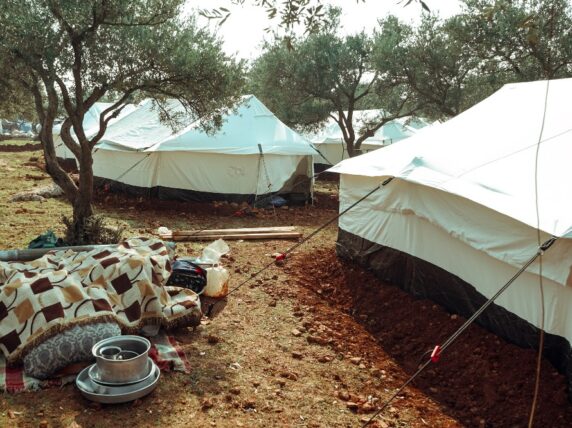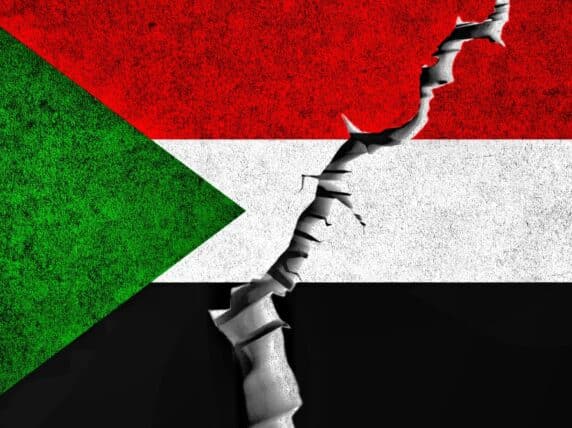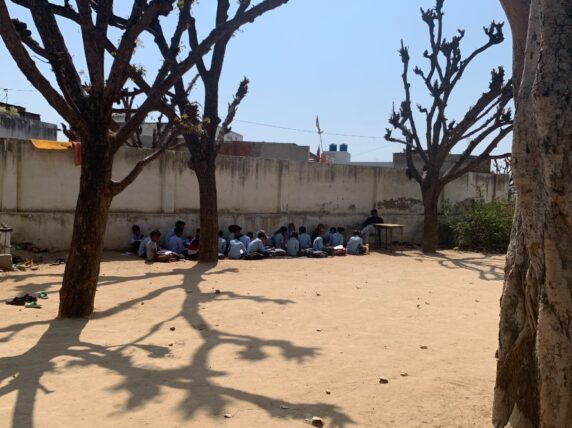How can the UK better support local humanitarian heroes?
This year’s World Humanitarian Day celebrates #RealLifeHeroes.
The UN, donors and NGOs are putting out pictures and stories to illustrate the courageous work of frontline aid workers, including many nationals working for local organisations in countries affected by crisis.
Covid-19 has brought into sharp focus the large extent to which life-saving aid and protection efforts depend on local organisations, and the failure of the humanitarian system to adequately support them. A study by Center for Global Development found only 0.07% of funds channelled through the UN had reached local NGOs for Covid-19 response as of mid-June.
If #RealLifeHeroes are more often than not #LocalHeroes, then we need to do more than recognise them on this one day. We need to radically change the way we work.
How might the UK government better support #LocalHeroes? On 1 September, the new Foreign, Commonwealth and Development Office (FCDO) will be born. Here are three questions FCDO ministers and officials should consider.
How can the FCDO promote localisation amongst UN and INGO implementing partners?
The UK government has already taken small but useful steps in this direction in the Covid-19 response. The DFID Rapid Response Facility call for NGO proposals included two criteria for supporting local efforts. Applicants needed to provide at least 10% of funds to their local partners’ indirect costs. They also have to track and report on the level of funding local NGOs receive.
Subscribe to our newsletter
Our weekly email newsletter, Network News, is an indispensable weekly digest of the latest updates on funding, jobs, resources, news and learning opportunities in the international development sector.
Get Network NewsThese criteria should become systematic requirements for all UK humanitarian funding, including for UN agencies as well as INGOs. Covering the overhead costs of local NGOs is the right thing to do, not least if we want to ensure risks like safeguarding or financial management are effectively addressed. Likewise, we need transparency if we want to track the UK’s progress in supporting in local NGOs.
How can the FCDO scale up direct support to local actors?
The Prime Minister, Foreign Secretary and others have argued that the DFID-FCO merger can strengthen aid effectiveness through a more politically-informed approach. Talk of political agendas rings alarm bells for humanitarians as it could imply compromising on the provision of life-saving aid – which is supposed to be informed by an impartial assessment of humanitarian needs, regardless of where people live or their political, social or other affiliations.
But if a politically-informed approach was mobilised to promote principled humanitarian action, that would actually be a good thing. Local faith groups, for example, are often the first responders and stay with communities when others pull out of a context. Yet they are often off the radar for mainstream humanitarian agencies. A more politically-informed approach could change this.
To enable a more contextualised approach, the FCDO needs to scale up funding to country-level, locally-led partnerships, consortia and funding instruments that promote leadership by local actors. The FCDO could invest in the staff and partnerships required to more effectively get funds to networks and community groups representing the most vulnerable and at-risk sections of society.
When Covid-19 broke out, CAFOD mobilised funding from its supporters to local partners within days to support their life-saving work. But when it came to accessing funds from institutional donors and UN, things moved much slower. Most of DFID’s funding for Covid-19 has gone via the UN, which often performs poorly on partnership and getting funds to local NGOs. An exception to this was UK funds directed to mechanisms like the country-level LIFT Fund in Myanmar and the Start Network. The FCDO needs to scale up support to these kinds of platforms to provide rapid and effective support to local #RealLifeHeroes.
How might joined-up diplomatic and aid efforts better address the threats faced by local civil society?
Sadly the Covid-19 crisis has worsened pre-existing trends in harassment and violence against local NGOs and human rights defenders. Autocratic governments and other power holders have used emergency measures to crack down on independent civil society groups.
Looking forward, the FCDO needs to undertake regular consultations with civil society groups specialised in protection, human rights and related issues to understand the threats they face and identify options to better protect them.
One obvious entry point is how the FCDO frames UK funding to governments in fragile and conflict-affected states. A large amount of UK funding for Covid-19 response has gone into government social protection programmes. The FCDO should review such funding to ensure effective and clear guarantees on transparency, accountability, civil society space, protection and human rights.
What role for UK-based INGOs?
UK-based INGOs need to challenge themselves too. The agency I work for, CAFOD, is a partnership-based agency, but we’re asking ourselves tough questions about our approach and inviting independent partnership experts and local NGOs into that conversation.
Restrictions on movement and access in the Covid-19 crisis have forced many INGOs to adopt an increased reliance on remote management and local partners. In March, one of the UK’s largest humanitarian INGOs shared that over one third of its international staff had been withdrawn or relocated. Senior staff in many Bond members acknowledge that reverting to previous models of INGO presence and large-scale direct service delivery may be unsustainable.
So as agencies plan Covid-19 recovery, they should articulate clear and timebound ways they will support localisation in how they define “building back better.” More INGOs should also endorse the Charter4Change as a means to catalyse organisational change and learning about localisation. And donors, including the FCDO, should be asking us if not now, why not?
The Bond Humanitarian Group brings together practitioners to ensure the principled and effective delivery of UK aid to those in need during responses to natural disasters and conflict. Join the group now.
Category
News & ViewsThemes
UK aid



